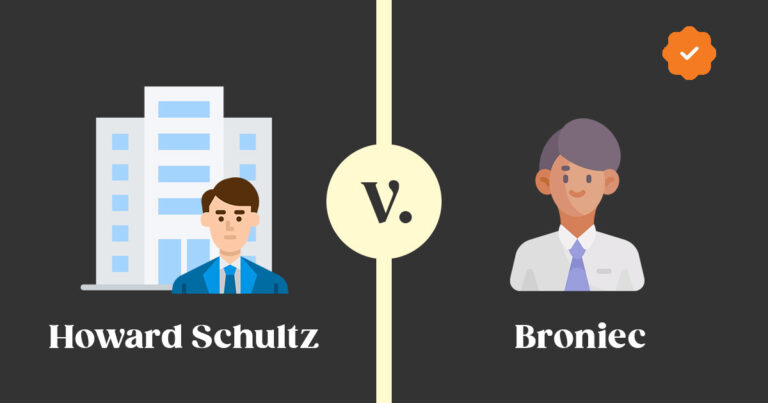Rule of Law
Non-compete agreement can be enforced if they are restricted in time and area and fair in terms of protecting the employer’s economic interests and it’s effects on the employee.
Facts of the Case
Edward Aubitz and his principal at Howard Schultz & Associates, Inc. recruited the defendant, Frank Broniec, to conduct audits of their respective clientele.
The agreement between the parties included a non-compete clause that prohibited Broniec, for two years after termination of employment, from engaging in any business or other activity in competition with Aubitz and HSA wherever they conducted business.
Issue
Is the non-compete clause enforceable under the law?
Holding and Conclusion
No.
Not all contracts with restrictive terms are enforceable. For example, a non-compete agreement is enforceable if it is reasonable, given the employer’s business interests and limited time and territory.
There are two types of territorial limitations:
- First, those that pertain to the assigned territory of the employee.
- Second, those that impact the region in which the employer operates as a whole.
The court concludes the agreement is invalid for three reasons:
- Because the plaintiff didn’t justify territorial restrictions.
- The non-compete agreement isn’t enforceable if the employee’s prohibited business activities aren’t stated. The agreement doesn’t describe the employee’s banned activities.
- The prohibition on Defendant accepting work with a rival in any manner is overly broad.
Reasoning and Analysis
The courts have repeatedly ruled that a contract not to accept employment with a rival “in any capacity” is unenforceable because it places a greater restriction on the employee than is necessary for the protection of the employer.
In this case, the employee is bound by a non-compete clause that forbids them from working for a competitor, in any position, “in any business, activity, auditing practice, or in any other connected activities.” Since the employee is restricted from working in any capacity for a rival, the court concluded that the contract is unreasonable.
In addition, the contract does not specify the nature and type of business that is or will be in competition with the employer, nor the prohibited activity for the employee.
Relevant FAQs of this case
What primary factors likely invalidate a non-compete agreement?
- Not employee centric: Employers frequently attempt to obtain a Non-Compete Agreement without considering its effect on the employee. Typically, such agreements are disregarded because the employee receives no consideration, which puts him in a tight condition or some cases, unemployed. A non-compete agreement must involve a “consideration” transaction to be enforceable. Even if the additional consideration is not particularly valuable, it must provide the employee with a benefit they would not have otherwise.
- Unreasonably long periods: The amount of time that the employee will not be able to work for a competitor plays another role in deciding the validity of the agreement. For example, a court will likely throw out a clause that says a person can’t work for anyone else for the rest of their lives. But in many fields, a non-compete agreement that lasts only six months is fair and will be accepted. Most of the time, employment agreements should be as short as possible while still protecting the employer’s rights. Consultation with an attorney is recommended to ensure the agreement is as long-lasting and enforceable as possible while maintaining the employer’s interest.
What is a non-solicitation agreement?
Utilizing an employer’s contact or client list for your business could be considered “solicitation.” However, due to the lack of a globally acknowledged definition of “solicitation,” the specific meaning may vary between agreements.
A former employee may be bound by a non-solicitation agreement that prohibits them from soliciting current or former coworkers or clients. Typically, the duration and territory of the contract are mentioned in the agreement.
Since non-solicitation agreements do not restrict an employee’s ability to find work elsewhere, the courts have traditionally taken a more favorable view of such contracts. It has been determined that non-compete clauses significantly limit employees’ freedom to look for work elsewhere. The company is genuinely interested in maintaining and protecting its customer base. On the other hand, non-solicitation agreements are often regarded as imposing reasonable conditions by the courts. This is because the employee is free to continue working in their area of competence despite the terms of the agreement.
In addition to non-competes, non-disclosure agreements, and non-disparagement clauses, employers may compel you to sign contracts prohibiting you from hiring former clients or coworkers.
References
Was this case brief helpful?
